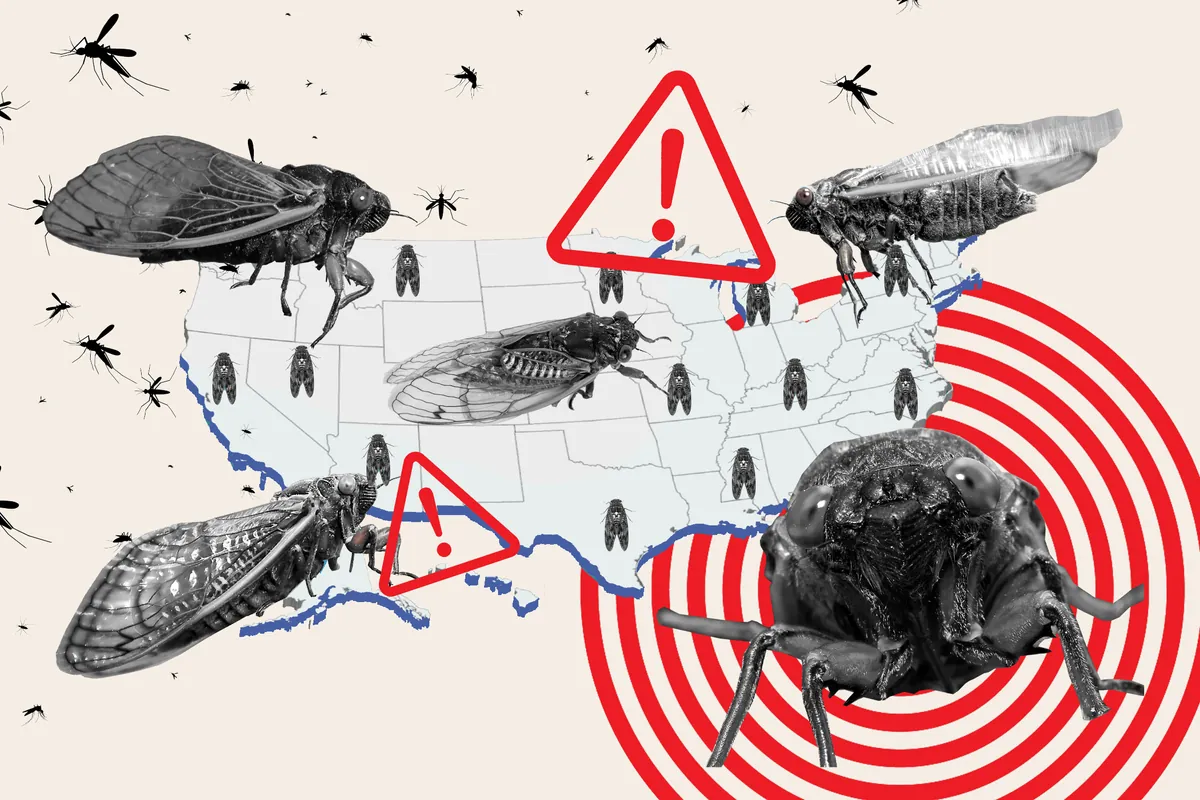Google Searches Reveal Disturbing Trends in "How to Kill" Queries
Analysis of Google search data uncovers concerning patterns in Americans' queries about killing insects, animals, and even themselves, raising questions about societal attitudes and mental health.

In the digital age, our search queries often reveal more about us than we might realize. An analysis of Google search data spanning two decades has uncovered some unsettling trends in what Americans are trying to "kill."
The investigation began with a surprising autocomplete suggestion for "how to kill cicadas." This prompted a deeper dive into the search habits of Americans, revealing a complex tapestry of intentions and concerns.
Insects top the list of kill-related searches, accounting for over half of the top 100 entities. Ants, fleas, and flies are the most common targets, with searches peaking during specific seasons. Interestingly, the data shows regional variations, such as the "Flea Belt" in the South and Appalachia, where residents are ten times more likely to search for flea elimination methods compared to those in the Mountain West.

Concerningly, even beneficial insects like bees appear on the list, highlighting a potential disconnect between public perception and ecological importance. This trend aligns with the ongoing "insect apocalypse," a term coined in 2017 to describe the dramatic decline in insect populations worldwide.
Plant-related searches are less alarming, often targeting invasive species or general lawn care issues. Regional differences are evident here too, with thistle searches common in the plains and prairies, while the Northwest focuses on blackberry bushes.
However, the data takes a darker turn when it comes to animals. While some searches, like how to kill lobsters in New England, may be related to food preparation, others are more troubling. Searches for killing lizards and frogs, particularly in the South and Sun Belt, raise ethical questions about human-wildlife interactions.
Most disturbingly, searches related to harming pets and self-harm are alarmingly common. The phrase "how to kill yourself" has long been the most popular "how to kill" search, though it's recently been surpassed by "how to kill time" and "how to kill someone." These trends spiked during the COVID-19 pandemic lockdowns in 2020-2021.
It's crucial to note that search data doesn't always correlate with real-world actions. For instance, suicide-related searches show little relationship to actual suicide rates reported by the Centers for Disease Control and Prevention (CDC) from 2004 to 2020.
"Searches for both terms are relatively infrequent, so we fear they may be affected by changes in how the search engine processes data, or by Americans changing the way we search in response to a meme or some other shift in popular culture."
While this data provides fascinating insights into the American psyche, it also raises important questions about mental health, ecological awareness, and societal attitudes. As we continue to navigate the digital landscape, it's crucial to remember that behind every search is a human with complex motivations and needs.
If you or someone you know is struggling with thoughts of self-harm, please reach out to the 988 Suicide & Crisis Lifeline by calling or texting 988. Help is available 24/7.


































